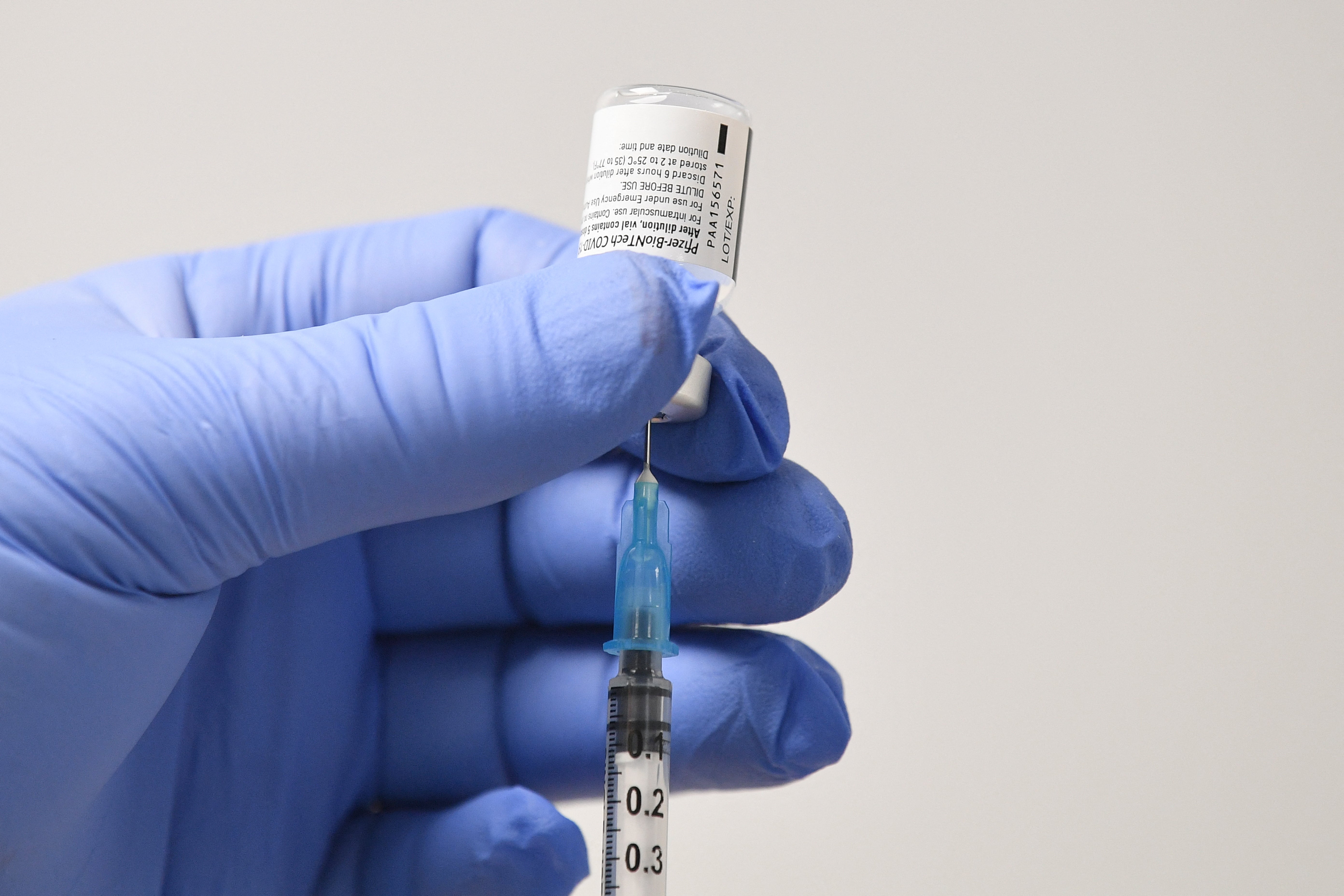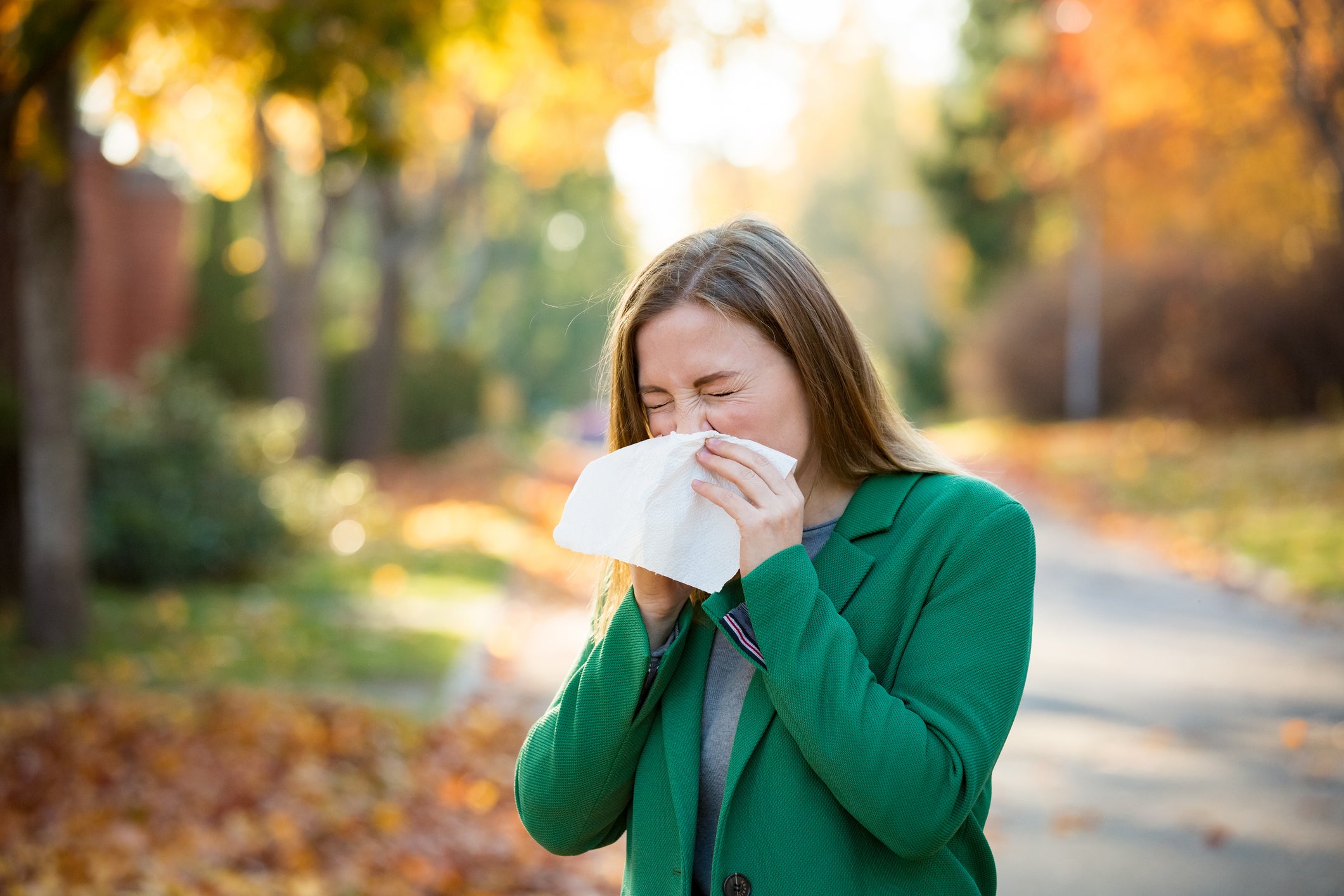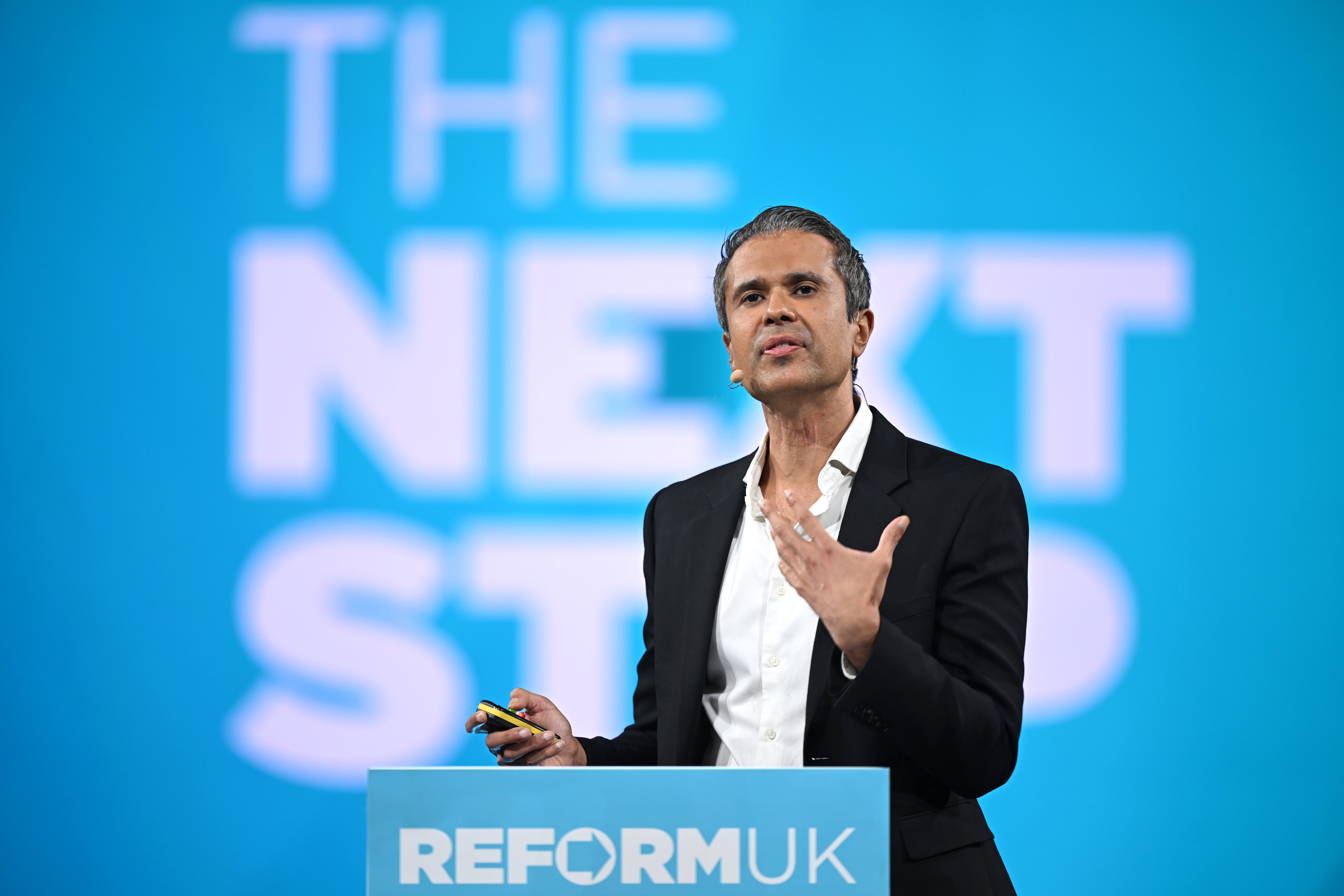

HEALTH
Teenagers Are Turning to AI for Emotional Support: Psychiatrists Issue urgent Warning!
Published
1 month agoon
By
OBS
Idowu Abdullahi
Mental health experts have raised concerns over the growing trend of children and teenagers turning to artificial intelligence tools and social media for emotional comfort instead of seeking support from their parents.
The experts explained that while AI can provide quick responses and a sense of companionship, it cannot replace the guidance and emotional security that family bonds provide.
They stressed that reliance on technology for coping with stress or emotional struggles may leave children more vulnerable to depression, isolation, and even suicidal thoughts.
According to the psychiatrists, parents must take deliberate steps to strengthen communication and trust with their children, especially in this digital age.
The psychiatrists spoke to OBS Healthwise after a couple sued OpenAI over the death of their teenage son, Adam Raine. In their lawsuit, the California-based couple alleged OpenAI chatbot, ChatGPT, encouraged their 16-year-old son to take his own life.
A Child and Adolescent Psychiatrist, Dr. Tinuola Gunwa-Ajayi, warned that such dependence on AI tools or social media poses serious dangers to children and teens’ mental health.
Speaking exclusively to OBS Healthwise to commemorate the 2025 World Suicide Prevention Day, Gunwa-Ajayi, who is also a Professor of Psychiatry, noted that the rise of social media, technology, and AI had significantly impacted teenagers’ lifestyles, often increasing the risk of depression and suicidal tendencies.
She explained that while technology had some benefits, its harmful influence on young people, especially when it replaces human interaction, could not be overlooked.
“We can look at it in different ways, but generally, the rise of social media, technology, and AI—whatever it is in the technology space—has significantly impacted teenagers’ lifestyles, particularly by increasing the risk of mental health difficulties, sometimes even leading to suicide in teenagers,” she said.
The psychiatrist stressed that social media influences children and teens in several ways, including encouraging unhealthy comparisons that make young users feel inadequate.
“The influence of social media is very powerful. It can create comparisons that are unrealistic, especially for young children and teenagers, which could eventually make them feel inadequate,” she explained.
Gunwa-Ajayi noted that social media often creates a false sense of connection, giving children the impression that they are interacting, while in reality, they are becoming more isolated.
“Social media also creates a false sense of connection. Yes, they think they are talking to people, but in reality, they are isolated. The more they get involved in social media interactions, the more disconnected they are from real, physical connections. And people often don’t realise that physical connection is extremely important for our mental health, emotional, physical, and social wellbeing,” she added.
According to her, while social media may have positive uses, its negative impact outweighs the benefits if not monitored closely by caregivers.
She also expressed concern about the addictive nature of AI, warning that children, university students, and even adults now openly admit to making AI their closest companion.
“AI is a very addictive tool. A lot of children, university students, and even adults have admitted to making AI their closest companion,” she warned.
Gunwa-Ajayi said one of the biggest threats posed by AI was misinformation, explaining that when vulnerable children seek help online, they may be exposed to dangerous ideas.
“One of the negative issues with AI is misinformation. People have tied in so many things that now it generates misleading content for children and teenagers. For example, a child may search, ‘AI, I’m depressed or AI, I’m sad’. Because of the over-bombardment of AI content, sometimes they get useful information, but other times they encounter harmful ideas,” she said.
The mental health expert cautioned that harmful content can mislead children into fixating on suicide as an escape from depression rather than seeking help.
“While searching for help, the algorithm might bring up content like, ‘This person committed suicide because they were depressed’. Instead of focusing on recovery, the child fixates on suicide as an option. They start to think, If people got out of depression by suicide, maybe that’s the solution for me. This is very dangerous,” she emphasised.
The psychiatrist further warned that over-reliance on AI could make parents irrelevant in the lives of their children.
“Another issue is over-reliance on technology. A lot of teenagers are completely dependent on it. While they’re having me-time, they can build total dependence on AI or social media. That makes you, as a parent, irrelevant in their life,” she explained.
Gunwa-Ajayi highlighted the risks of children turning to AI-driven solutions instead of parents, teachers, or trusted adults, stressing that technology cannot provide the emotional safety children need.
“When children are over-reliant on technology, they turn to AI-driven solutions. Instead of seeking help from their parents, teachers, or trusted adults, they ask AI for advice. This can be detrimental because AI is only technology—it does not see or filter the impact of what it outputs. This is how children get ensnared,” she said.
Gunwa-Ajayi stressed that nothing could replace quality family time and that parents and caregivers must prioritise building trust with their children.
“So, nothing is comparable to family time, relationships, and caregivers making time for teenagers. Establishing a trusting relationship with children cannot be overemphasised. Therapists, psychologists, and psychiatrists are important, but prevention starts with parents, caregivers, and teachers making time for children,” she said.
She urged parents to normalise reducing screen time and ensure that children spend more time engaging in human interaction rather than being glued to their gadgets.
“My message to parents, caregivers, and everyone is this: making time for children is non-negotiable. Normalise minimising screen time. During the week and even weekends, children have no business being glued to their phones all day. Put a time frame on it. These days, there are apps that allow parents to control screen time,” she advised.
Gunwa-Ajayi warned that without deliberate efforts to monitor children’s use of technology, many parents risk losing their children to the harmful grip of social media and AI.
“But if we don’t make conscious efforts to monitor and minimise screen time, we are losing our children—and losing them fast. So my message is: screen time must never replace human interaction,” she said.
Also, a mental health expert, Prof. Adesanmi Akinsulore, warned that while social media is beneficial for self-expression and connection, it carries significant risks to mental health and can contribute to suicide.
Akinsulore, who is a psychiatric expert from Obafemi Awolowo University in Ile-Ife, Osun State, described social media and technology as a “double-edged sword.”
While they offer benefits such as connection and self-expression, he noted that social media also creates unrealistic expectations and fuels detrimental behaviours, including suicidal thoughts.
The professor emphasised that cyberbullying, social comparison, and internet barriers could worsen suicidal tendencies, especially in individuals facing additional challenges.
He cautioned that while suicide is preventable, the number of suicide cases in Nigeria is on the rise.
Akinsulore also highlighted that many individuals experiencing suicidal thoughts do not genuinely wish to die, but instead seek an end to their emotional pain.
“We must not leave someone at risk of suicide alone. Ask about suicide, be there for them, help keep them safe, and connect them with support,” he advised.
All rights reserved. This material, and other digital content on this website, may not be reproduced, published, broadcast, rewritten, or redistributed in whole or in part without prior express written permission from OBS.
You may like
-


Is Tinubu Turning Nigeria into a One-Party State? ADC Reveals Concerns!
-


Thomas Tuchel Issues SHOCKING Warning to Marcus Rashford: Don’t Regret Your Career Choices!
-


Urgent: Last Chance for Millions as Windows 10 Support Ends Today!
-
Urgent Call: Why the FG Must Monetize Oil and Gas Reserves NOW Before Demand Skyrockets!
-


Millie Bright: Lionesses’ Beloved Legend Shocks Fans with Emotional International Retirement Announcement!
-
NCAA Issues Urgent Warning: Airlines Face Backlash Over Delayed Refunds – Find Out Why You Need to Act Now!
HEALTH
Can’t Tell If It’s Covid or the Flu? Here Are the Key Symptoms You Must Recognize as Cases Surge!
Published
2 weeks agoon
October 16, 2025By
OBS
Health officials are warning of a seasonal surge in flu and Covid-19, with cases already starting to rise as autumn arrives.
But because the two viruses share many symptoms, it’s difficult to tell them apart.
When a sniffle seems to progress further than “just a cold”, it’s hard to know what it might be – but there are differences in how the viruses appear and the risks they pose.
Do I have Covid?
Covid-19 continues to cause serious illness, particularly among vulnerable groups. The virus is constantly evolving, with new variants spreading easily through coughs, sneezes or even conversation.
Vaccination campaigns each autumn continue to try to prevent hospitalisations and deaths.
The list of symptoms has shifted since 2020. Many people now experience cold-like symptoms, such as a runny nose, sore throat or blocked sinuses. But others still report fever or chills, a persistent cough, fatigue, headaches, shortness of breath, or a loss of taste and smell. Nausea and diarrhoea can also occur.
Doctors say a hoarse throat has become one of the hallmark features of the latest variants.

The latest strain, called Stratus, has two variants, XFG and XFG.3. Another recent strain, NB.1.8.1 nicknamed Nimbus, is also prevalent.
“Stratus is linked to hoarseness and fatigue, whereas Nimbus is associated with a ‘razor-blade’ sore throat and digestive symptoms like nausea and bloating,” explains Dr Bruno Silvester Lopes, lecturer in microbiology at Teesside University. “Both are highly transmissible but not more severe than previous variants.”
Despite accounting for a large proportion of new cases, experts are not concerned about the spread, noting it is normal for viruses to mutate and change.
Those aged 65 and over, care home residents, and people with underlying health problems are all entitled to the Covid-19 booster.
Do I have the flu?
Flu is a respiratory infection that strikes hardest in winter and can be far more debilitating than the common cold. While colds typically bring a runny nose, sneezing, watery eyes and mild throat irritation, flu tends to arrive suddenly with fever, aches and exhaustion.
Last winter alone, the flu sent more than 8,000 people to hospital. Over the past two years, at least 18,000 deaths in the UK have been linked to the virus. Children, older adults, people with long-term health problems and those with weakened immune systems face the highest risks.

Vaccination remains the strongest defence. Research shows that last year’s jab prevented thousands of severe cases, cutting hospital admissions by almost a third among over-65s and by more than half among children aged two to 17.
This autumn, the flu vaccine is being offered free to those over 75, pregnant women, children aged 2 and 3 through their GP, and schoolchildren from reception to year 11 via nasal spray. Adults under 65 with certain health conditions are also eligible.
How to tell difference between Covid and a cold
Colds and Covid can be tricky to distinguish as many of their symptoms overlap.
“Both can give you a sore throat, runny or stuffy nose, sneezing, and coughing,” says Dr Chun Tang, a GP at Pall Mall Medical. “However, Covid can also cause fever, fatigue, muscle aches, and that telltale loss of taste or smell – although that’s less common with newer variants.
“Covid is also more likely to make you feel wiped out, like you’ve been hit by a truck, whereas a cold tends to stay in your head and chest.”
“Both spread mainly through droplets when someone coughs, sneezes, or even talks near you,” says Tang. “Covid, however, can also spread more easily through the air in tiny particles that linger, especially in crowded or poorly ventilated spaces.
“So, while a cold might need a bit of close contact to catch, Covid can sometimes sneak across the room if you’re unlucky.”
Are cases climbing now?
According to the UK Health Security Agency, levels of flu and Covid-19 are already on the rise running into winter, joining other seasonal bugs such as RSV and norovirus.
UKHSA reported an increase in the number of reported Covid diagnoses in its 9 October report, with the most prevalent strain noted as Stratus XFG. Flu activity was also increasing among young adults with a surge in emergency department attendances for flu-like illnesses.
Experts say the risk is highest during the colder months when viruses spread more easily indoors.
Officials are urging everyone eligible to take up their vaccines to reduce the strain on hospitals and protect the most vulnerable. Both flu and Covid-19 can be serious, but prevention and early awareness remain the best tools against them.
HEALTH
Shocking Recall: Grocery Store Taco Kits Contain Hot Chocolate Packets!
Published
2 weeks agoon
October 16, 2025By
OBS
The Giant Company is recalling its Giant and Martin’s-branded hard taco dinner kits after hot chocolate sachets were discovered inside the packages.
The mix-up, announced October 10, could pose a risk to consumers with milk allergies.
The recall affects the 9.4-ounce Giant/Martin’s Hard Taco Dinner Kit (UPC 068826757516) all lot and codes, with a best-by date of March 13, 2026.
Consumers with a milk allergy should not eat the kits. Anyone who purchased the affected product can return it to a nearby store with a receipt to receive a refund.
Milk allergy is a common food allergy in children, caused by cow’s milk or milk from other mammals, according to Mayo Clinic.
.jpg)
Reactions can occur soon after consumption and range from mild symptoms like hives, vomiting, and digestive issues to severe, life-threatening anaphylaxis.
The main treatment is avoiding milk and milk products. Most children outgrow the allergy, while others may need to avoid milk long-term.
Meanwhile, Sno Pac Foods, a Minnesota-based company, has issued a nationwide recall of its frozen spinach products due to potential contamination with Listeria monocytogenes, a bacterium that can cause serious infections.
The recall affects two products: Del Mar 35-pound Bulk Organic Frozen Spinach and Sno Pac 10-ounce Organic Frozen Cut Spinach. These products were distributed across various retail stores in the U.S. The recall was prompted after a bulk case of spinach from a supplier tested positive for the bacterium.
This same lot was used to repack the Sno Pac Organic Frozen Cut Spinach into 10-ounce bags. As a precaution, Sno Pac Foods has suspended production of these products while investigating the source of the contamination.
No illnesses have been reported in connection with the recalled products. However, Listeria monocytogenes poses a significant health risk, particularly to young children, the elderly, pregnant women, and individuals with weakened immune systems.
In healthy individuals, infection may cause short-term symptoms such as high fever, severe headache, stiffness, nausea, abdominal pain, and diarrhea. Pregnant women are especially vulnerable, as infection can lead to miscarriage or stillbirth.
HEALTH
Could Trump’s Meds Be Slowing Him Down? Expert Warns They Might Not Be Helping!
Published
2 weeks agoon
October 16, 2025By
OBS
An adviser to Health Secretary Robert F. Kennedy Jr. warned Wednesday that President Donald Trump may appear to be “slowing down” because of the medication he takes, as questions continue over the president’s mental and physical health.
In a speech to the European Parliament, Dr. Aseem Malhotra, a British cardiologist who advised the lobby group Make America Healthy Again, said that Trump, 79, may be suffering from fatigue due to his use of cholesterol medications, or statins, and aspirin.
“President Trump is taking statins; he’s on two cholesterol drugs… This man does not have any cardiovascular disease,” Malhotra said during a launch event for a new European health activism organization, Make Europe Healthy Again (MEHA).
“If you’re over 75 and have no cardiovascular disease, the benefit of statin is – are you ready? One in 446. You have to give the statin to 446 people to prevent one cardiovascular event,” he said. “In other words, no significant benefit.”
Malhotra, a vaccine skeptic whose anti-COVID shot and anti-statin views have been rebuked as misinformation by medical experts, has been a close ally to Kennedy.

His comments come amid claims that the president may be showing signs of “cognitive decline,” due to mixing up names and other gaffes. Despite the speculation, the White House said last week that Trump was in “excellent overall health” following a “routine check-up” at Walter Reed Medical Center.
In addition to concerns about his mental acuity, Trump’s physical health has also come under question. The president has often been photographed with bruising on his right hand, raising concerns that he is suffering from some illness. The White House insists that this is a result of him shaking hands with a large number of people and his use of aspirin, which he takes as a cardiovascular protection.
White House officials revealed earlier this year that he had been diagnosed with chronic venous insufficiency, a non-life-threatening condition caused by the veins struggling to return blood to the heart. The condition is common for people over the age of 70.
During his remarks, Malhotra noted that cholesterol medication often comes with side effects, saying: “The most common ones are fatigue, muscle pain. It can cause brain fog.”
He added: “Now, I know that President Trump is a remarkable man for his age, but there have been reports – probably exaggerated by some sort of devious press for sure. But I know people who are close to him… and of course he is doing a tremendous job and maybe only sleeping four hours a night, and that may be part of it too, but it could also be that he’s slowing down a little bit because of his statins,” he continued.

Malhotra then suggested that Trump go “off his statins, off his aspirin” and would be “feeling great” within a matter of weeks.
He was apparently so concerned about Trump taking the medications that he has reached out to several people close to the president to try and warn him against it, The Daily Beast reported Tuesday ahead of Malhotra’s public remarks.
In a statement to The Independent, the White House said: “President Trump is a champion-level golfer with the mental acuity and energy levels that most young people could not fathom having.”
“So-called medical ‘experts’, especially foreign ones with no relevance or involvement with the Administration, should stop beclowning themselves and marring their credibility by pitching their idiotic hot takes with Fake News outlets that have nothing better to cover,” White House spokesman Kush Desai said.

Along with Trump’s most recent gleaming health report, White House officials noted the president received a flu shot and an updated COVID-19 booster, which Malhotra called unnecessary.
“I think President Trump, I think he genuinely took the [COVID-19] booster, I don’t think that this is a front. I think he believes in what’s happening. He himself is also a victim of medical misinformation,” Malhotra said.
However, recent research shows that COVID shots protect against serious illness and death, especially for people over the age of 65. Researchers from the VA St. Louis Healthcare System looked at data from nearly 300,000 veterans and found that last season’s Covid vaccine reduced the risk of emergency room visits by 29 percent, hospitalizations by 39 percent and deaths by 64 percent for all ages, NBC News reports.
Combining all three outcomes, the shots’ overall effectiveness was 28 percent, making it similar to the flu shot, which ranges from 30 to 60 percent protective against severe illness or death.
An April health report also noted that Trump, who was the oldest person to ever take office in January at 78, was in “excellent” health.
The report also noted that Trump had high cholesterol that was being treated with the statin rosuvastatin and ezetimibe, a medication used to absorb cholesterol. He was also taking a low-dose aspirin as part of the treatment, his doctors said at the time.
While there is no evidence that statins alone cause dementia, the FDA added a safety warning to the medications in 2012 to warn of “notable, but ill-defined memory loss or impairment that was reversible upon discontinuation of statin therapy.”
Last month, Malhotra made headlines after suggesting – without evidence – that King Charles III may have gotten cancer because of the COVID-19 vaccine.
Categories
Top Tags
Related posts






















